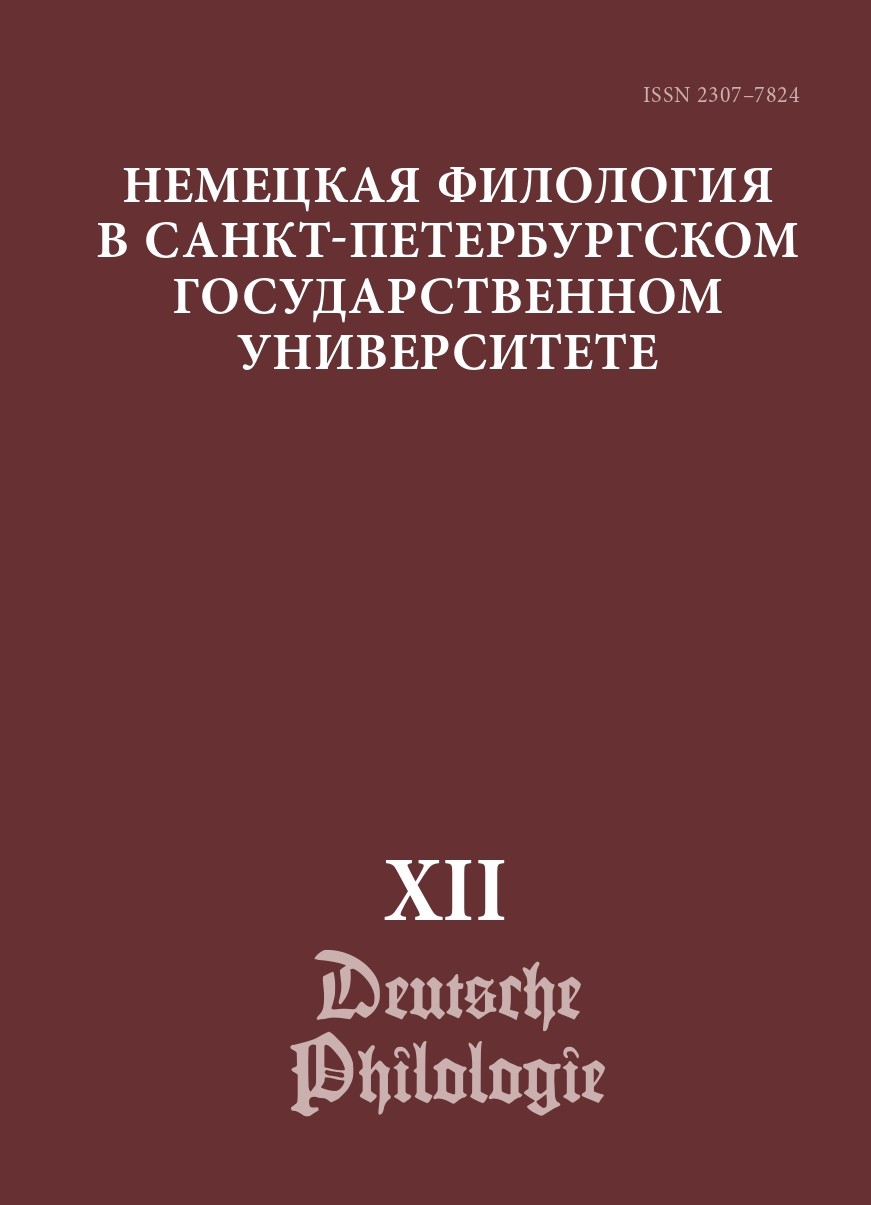FUNCTIONS OF A POETIC TEXT AS A COMMENTARY ON AN ENGRAVING OF THE 16TH CENTURY (ON THE EXAMPLE OF THE BOOK “DESCRIPTION OF ALL ESTATES AND CRAFTS ON EARTH” (“EYGENTLICHE BESCHREIBUNG ALLER STÄNDE AUFF ERDEN”) BY JOST AMMANN AND HANS SACHS, 1568)
Abstract
This article is devoted to study of the main functions of a poetic text written by the famous German poet Hans Sachs, as a commentary on the engravings of the Swiss woodcut and illustrator Jost Ammann. Published against the background of the Reformation, in the era of the development of printing and the rise of interest in various types of information, the collection of engravings “Description of all classes and crafts on Earth” (“Eygentliche Beschreibung Aller Stände auff Erden”) was aimed at expanding and systematizing the reader’s knowledge about the structure of society. The main functions are nominative (the name of the depicted object), informational (reporting information about a representative of a particular profession or class in society) and aesthetic (poetic commentary makes a significant contribution to the aesthetic value of the collection). A distinctive feature of the information function is its implementation: the main way of presenting information is typification — the representation of the object in the most generalized, recognizable form, indicating information that meets the
receptive capabilities of the reader. Additional features include a text pre-organization function (the role of the title as an element equally related to both the image and the text, pre-orients the reader), mnemonic or embedding function (duplication of information from the title in the main text in order to simplify its perception) and advertising (ensuring the popularity of a collection of engravings by attracting a well-known poet as a co-author). The article consists of introduction, main part and conclusion.
Downloads
Downloads
Published
How to Cite
Issue
Section
License
Условия передачи авторских прав на статьи и рецензии, опубликованные в ежегодном периодическом издании «Немецкая филология» регулируются условиями Лицензионного Договора автора с Санкт-Петербургским государственным университетом. В соответствии с Лицензионным Договором опубликованные материалы находятся в открытом доступе, а авторам бесплатно предоставляется неограниченные возможности их распространения и самостоятельного архивирования.




